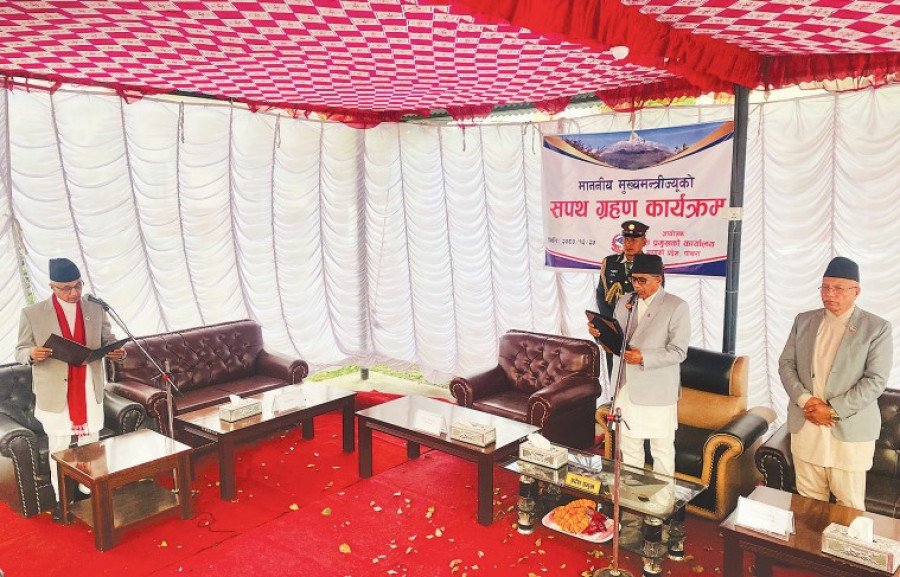Editorial
In Gandaki this time
Major parties are adding to the unpopularity of provinces and also doing grave damage to the constitution.
The Rastriya Swatantra Party that emerged as the fourth largest force in the House of Representatives from the 2022 general elections has deemed the present form of provinces unnecessary. The party wants either to scrap them or make radical changes in the middle layer of the three-tier federal system. In a clear indication of its reservation over the provincial system, the party didn't contest provincial seats anywhere in the country. As the Election Commission is holding bypolls for a vacant provincial seat in Bajhang (A) on April 27, the new party isn’t fielding a candidate for the seat either. Similarly, the Rastriya Prajatantra Party (RPP), which advocates for a Hindu kingdom, has launched an agitation by submitting a 40-point demand to the prime minister. The party plans a showdown in Kathmandu on Tuesday. One demand of the pro-monarchy party is to scrap the provinces.
Other fringe political parties and groups including the Rastriya Janamorcha are against the federal system as well. Likewise, there are also sizable sections of leaders in major political forces who are critical of provinces. Thus anti-province sentiment is getting stronger day by day. Given this challenging situation, the provinces themselves should have worked hard to prove their relevance. The reality however is the opposite. Leaders in provinces have failed to impress the public by their performance. The big three—the Congress, the UML and the Maoist Centre—who led the process of promulgation of the constitution in 2015 with the federal democratic republic as its key feature, should have shown the way.
Unfortunately, the same leading forces are now adding to the unpopularity of the provinces. The political parties that resorted to every tactic to grab power at the centre have repeatedly replicated the same practice while making governments. The appointment of CPN-UML's Khagaraj Adhikari on Sunday is the latest example. The UML staked its claim to the government claiming majority in its favour by including Speaker Krishna Prasad Dhital in the list of lawmakers supporting Adhikari as chief minister. It was a blatant violation of the Supreme Court order issued last September. The order was issued in a similar case when the UML leaders moved the top court after the Nepali Congress involved the Speaker to form its government in Koshi Province. Even the province head who is supposed to cross-check the political parties' claims and stop them from taking unconstitutional steps failed in their duty—in both the cases. This time, Gandaki Province Head Dilliraj Bhatta appointed Adhikari without raising any question about the Speaker’s involvement in the government formation process.
Again, rather ironically, the UML, which says its current act is constitutional, had moved the Supreme Court twice when the Congress resorted to similar tactics in Koshi last year. And, the Congress leaders who tried to defend their act now find UML’s similar step unconstitutional. This shows how the parties are ever-ready to abuse the statute and undermine the provinces. Even leaders of the Rastriya Janamorcha, which demands scrapping of the federal system, split the party in the race to become a provincial minister.
Not only are the major parties adding to the unpopularity of the provinces, they are also doing grave damage to the new constitution. They are sure to invite a grave constitutional and political crisis if they continue to see the provinces as no more than appendages of Kathmandu that they can freely tinker with.




 18.12°C Kathmandu
18.12°C Kathmandu














